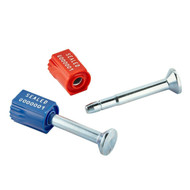What is CTPAT and How to Remain Compliant
Posted by Steve Diebold
CTPAT and What Being Compliant Means
Ever since the tragic terrorist attacks of September 11, 2001, the United States government has upped its vigilance for a number of safety measures, including smuggled weapons, humans, and contraband. To do so, they have added a number of security layers to the Customs and Border Protection (CBP) program. One of those measures is the Customs-Trade Partnership Against Terrorism, also known as CTPAT.
What is CTPAT?
CTPAT was initiated in November 2001 with ten major importers. Today, there are more than 11,000 CTPAT certified companies, including:
●U.S. importers
●U.S./Canada highway carriers
●U.S./Mexico highway carriers
●Rail and sea carriers
●Licensed U.S. Customs brokers
●U.S. marine port authority/terminal operators
●U.S. freight consolidators
●Ocean transportation intermediaries and non‐operating common carriers
●Mexican and Canadian manufacturers
●Mexican long‐haul carriers are part of the CTPAT network and enjoy a long list of privileges.
There are a number of benefits companies experience from being CTPAT compliant, including:
●Dedicated supply chain security specialists
●Faster transport of good across borders
●Priority consideration in the case of an emergency
●Lower fines than non-compliant companies
●Business preference by many domestic companies
●Additional site, personnel, and data security resources
CTPAT network partners are simply more trustworthy in the eyes of the nation. Since they work in close association with the CBP and follow their recommended practices, entries filed by these members are not subjected to the rigorous security checks that other more questionable cargo is.
How to get CTPAT compliant
The CTPAT alliance is not mandated by the US government. It is a voluntary admission program. It aims to ensure that healthy trade relations are maintained with countries on a global scale and the international trade supply chains are strengthened. With the expertise and cooperation of the CBP, importers who are a part of CTPAT work on protection best practices and identify possible security gaps to get their goods into the country without being intercepted and breached by miscreants and agents of terrorism who may use the cargo to smuggle in the requisites of launching an attack on the nation.
The partners who enforce adherence to the basic guidelines of CTPAT are given a Tier 2 ranking. Those who go above and beyond the stipulations to come up with innovative and proactive ways to collaborate with the CBP are honored with a Tier 3 status. Tier 3 CTPAT partner entries are 9 times less likely to undergo security exams. And this is a huge convenience as well as monetary relief.
There are many resources available for companies looking to become CTPAT compliant, including this FAQ sheet provided by the U.S. government. It offers great detail about program application, expectations, criteria, and more.
American Casting and Manufacturing is an industry expert and boasts the shortest lead time for custom printed and numbered seals. It has a wide array of compliant cable locks and bolt seals to hold goods in place and prevent tampering or manipulation. Without these one-time use padlocks, it is not possible to process the CTPAT security checklist and be a part of this esteemed network.

